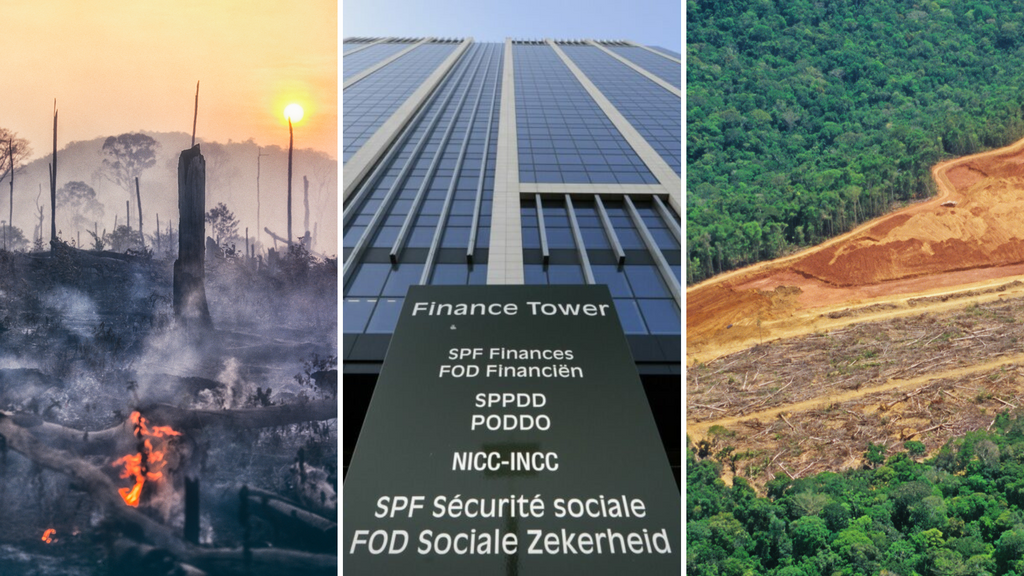Whilst Belgians might be feeling short-changed with how summer has slipped away, there is no ignoring the imperative to act immediately to prevent even more severe weather events.
This year, El Niño has already led to record sea surface temperatures and there's more to come – whereas wildfires rip rapidly through ecosystems, the Niño cycle has a much longer effect and typically drives higher temperatures for a one or two -year period. Mobilising emergency teams won't dissipate the heat and even today's modelling systems struggle to forecast when the next catastrophe will rear its head.
In what has been heralded a "milestone" meeting, delegations from around the world are this week travelling to Brazil to discuss an international effort to save the Amazon rainforest from the ravages of deforestation – a centrepiece of the campaign that helped Lula da Silva oust climate denier Jair Bolsonaro as President.
Yet whilst all but the most madcap world leaders now recognise that future prosperity depends on ecological resilience (at least in public speeches), the failure to comprehend what this entails with regard to economic policy paints a dismaying picture of the global tendency towards climate breakdown.
Those familiar with the work of economist Kate Raworth will understand the fix we find ourselves in – how can we reconcile the demand for economic growth with the desperate need to slow and even reverse our greenhouse gas-emitting activities? The two seem diametric opposites but it's the insatiable appetite for the former that is winning, summed up in Paul Krugman's now inescapable refrain for productivity.
Our current conception of trade and commerce gives almost no thought to living within the planet's limits and leads to such warnings as Belgium's economy being vulnerable to future shocks. Not environmental shocks mind, rather those brought on by faltering employment rates and budget constraints that leave the government unable to provide assistance when most needed.
Most painful is that the world's climate and economic problems are weighing ever more heavily on us all, yet we remain unable to grasp that addressing one means dramatically changing the other. Can the two be squared? Let @Orlando_tbt know.
Belgium in Brief is a free daily roundup of the top stories to get you through your coffee break conversations. To receive it straight to your inbox every day, sign up below:
1. Belgian economy cannot cope with long-term challenges, study finds
The Belgian economy is ill-equipped to face major long-term challenges, with soaring public debt and low labour market participation posing a significant threat to the country's future economic health, a recent study has found. Read more.
2. Brussels' municipalities offer reduced rate for changing 'foreign-sounding' name
The fees charged by local authorities to those looking to officially change their first name can differ dramatically by Brussels' commune. In some, a large reduction is offered when changing a so-called "foreign-sounding" name. Read more.
3. 'If it disappears, so be it': Belgian former EU official unconcerned by loss of European industry
A Belgian former senior EU official has played down the potential loss of Europe's heavy industry, suggesting that the continent's deindustrialisation should even be welcomed if it is driven by natural market forces. Read more.
4. 'Sindays': Belgium's most secretive erotic parties
Fyodor Dostoevsky once wrote that "in sinning, each person sins against all, and each person is at least partly guilty for another's sin. There is no isolated sin." Read more.
5. One in three self-employed works more than 50 hours a week
One-third of self-employed people in Belgium work more than 50 hours per week – much more than the average employee. However, surveys have found that extra hours are not an immediate strain on their mental well-being. Read more.
6. Hidden Belgium: Red Star Museum
The great ocean liners of the Red Star Line carried some two million of migrants from Europe to North America, among them Irving Berlin and Albert Einstein. Read more.
7. Today in History: Nearly 300 miners killed in the Marcinelle coal mine disaster
On this day, 8 August 1956, the Bois du Cazier tragedy took the lives of 268 miners. More than half of the victims were Italian. Read more.


